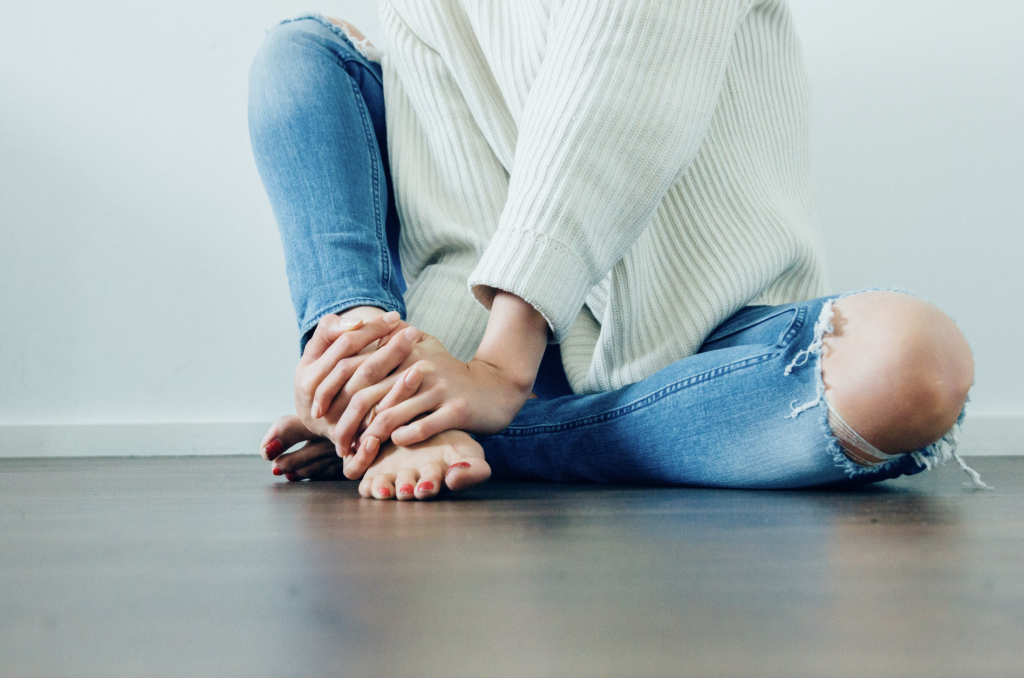Today we have a post from Hannah Wise, one of our Master’s Level Interns. Hannah is a compassionate therapist at Anchored Counseling Co., dedicated to helping individuals reconnect with themselves and their bodies. She values empathy, authenticity, and vulnerability in her therapeutic relationships, aiming to create a safe and collaborative space for healing and recovery. Hannah believes in the inherent beauty and worth of all bodies, emphasizing their empowerment in overcoming daily challenges.
Specializing in eating disorders, body image concerns, women’s issues, trauma, self-esteem, depression, anxiety, and OCD, Hannah employs a variety of therapeutic approaches. She is proficient in Cognitive Behavioral Therapy (CBT), Acceptance and Commitment Therapy (ACT), Somatic Experiencing, mindfulness, and family therapy, tailoring her methods to meet the unique needs of her clients.
Hannah is deeply committed to walking alongside her clients on their journey of reconnection and self-discovery, offering her expertise and support every step of the way. We hope you enjoy today’s post from Hannah!
Recently, we have seen a rise in the body positivity movement. Influencers and celebrities we love to follow on Instagram and TikTok are telling us to love our body no matter what it looks like rather than giving us their favorite diet tips. We are told that we should drop our every insecurity and give our bodies unconditional love. That sounds amazing, right? On its face, body positivity is freeing. It would be such a gift to be able to drop every harsh thought we have about our body and just love it as it is. However, if we dig a little deeper into body positivity, we may find that it isn’t as tangible as it seems.
Body Positivity is a lot of Pressure: Realistically, is it feasible for you to wake up tomorrow and whole-heartedly love your body? Probably not. And that is totally okay! It is a big ask for someone to be expected to wake up each day and love their body no matter how it fluctuates, changes, and ages. Body positivity does not leave much room for nuance and understanding that our bodies and moods fluctuate daily. What happens if you do wake up one morning and just cannot will yourself to love your body that day? Does that make you a failure? No! This is why although body positivity is a wonderful idea and goal to (maybe) strive for, it can also feel inauthentic and farfetched for some. Additionally, it takes hard work to improve your body image. The process usually involves facing your own self-critic, past traumas, and internalized messages around fatphobia, which does not happen overnight. Some individuals may not reach body positivity, and that is okay. There are other forms of body image that can still bring relief from body hatred.
The Body Image Spectrum: Body image is like a spectrum. On one side, there is body hatred. On the opposite end, is body positivity. Between those two end-points, there are three stops along the way in one’s body image journey. If the first stop is body hatred, then the second is body tolerance. This is when someone still has negative body image but not to the point of where looking at or thinking about your body feels highly distressing and intolerable (which would be body hatred). It would look like leaning into your negative body image rather than emotionally avoiding altogether. The third stop, which is in the dead center of the spectrum, is body neutrality. This is when someone does not place any morality on their body. The body is just a space to be lived in and allows you to operate in the world. Finally, between body neutrality and body positivity is body acceptance. This is when someone loves their body for what it does for them, such as hug people, go for long walks, and dance to pop songs. Someone in body acceptance does not necessarily wake up daily and love their body; rather, they lead with gratitude in the knowledge that their body is capable and worthy.
Improving Body Image: I mentioned earlier that improving body image is hard work. It takes time and conscious effort to improve body image. I want to emphasize that any progress you make in improving your body image deserves to be celebrated even if that means moving from body hatred to body tolerance. For many, body tolerance may be the end goal and that is perfectly okay. So, what are some steps you can take to improve body image? The first is doing some thought reframing. For example, you may have the thought that you don’t like your legs. A reframe for this thought could be: “I don’t like my legs, but they let me walk my dog.” This can be a difficult skill at first, but with practice, you’ll find that it gets easier to release the initial critical thought and flip it or at least add gratitude to the thought. You could also do some self-compassion work. Self-compassion is the combination of mindfulness, kindness to self, and shared humanity that we all struggle sometimes so therefore we are never really alone. When you have a negative thought around your body, allow yourself to recognize it (mindfulness), implement thought reframing (kindness to self), and reach out to a loved one to share how you are feeling or just experience connection (common humanity). Finally, if improving body image feels overwhelming to do alone, reach out to a mental health professional for additional help and support.
Closing
I hope this post gave you a new perspective on body positivity and body image as a whole. I hope it relieved you of some pressure to love your body no matter what and motivated you to get curious about where you fall on the body image spectrum. If you want to learn more about this topic, follow registered dietitian Emily Murray on Instagram @emilymurray.rd on Instagram. She has wonderful tips and dialogue around body image on her page.
Finally, I’d like to leave you with an affirmation to carry with you on your body image journey:
AFFIRMATIN OF THE DAY: I am grateful for my body, what it does for me, and how it can serve others.
You got this!
Hannah Wise
We hope you found Hannah’s insights on body positivity helpful. If her message resonated with you, this could be the perfect time to take meaningful steps toward your healing and peace. To initiate your work with Hannah, please feel free to call our office at 615.510.3797 or click here to learn more.





